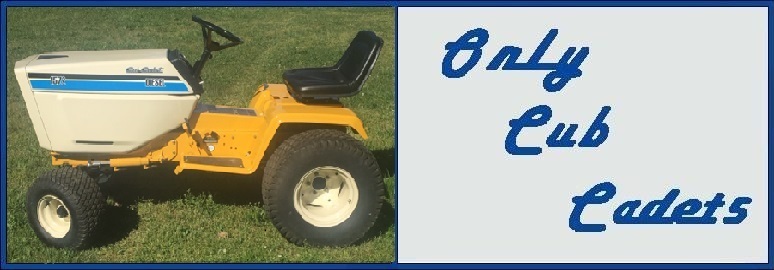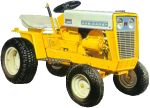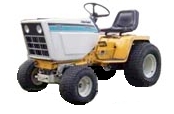
 |
PLEASE PATRONIZE OUR SPONSORS!






|
|||||||
 |
|
|
Thread Tools | Display Modes |
|
#1
|
|||
|
|||
|
.
I want to put in my first garden ever this year, but the only location for it is an area that is likely above an old septic leach field. It was a year and a half ago that the septic tank was replaced with an aeration system and the leach field hasn't been used since. Im not for sure if the leach field is in this area, but there's a real good chance it is. I've googled the subject and everything I've read says not to plant on top of a leach field, but they are speaking of active leach fields. How long do I have to wait until it's safe to garden in an old leach field area? .
__________________
One lonely old 1541, 3pt, Brinly plow and cultivator. |
|
#2
|
|||
|
|||
|
It's fertilizer. Why would it be unsafe? Disease can't pass from the ground into a plant. Put your garden there. It has a lot more to do with the mindset than any danger.
It should be deep enough that you won't hit any of the leech bed if your worried about that. |
|
#3
|
|||
|
|||
|
This opinion seems to be the consensus of the people that know:
It is generally considered a good idea to plant your septic field, but it isn’t the ideal place for a vegetable garden. According to the Virginia Cooperative Extension (VCE) shallow-rooting plants can help the septic drain system work well by removing moisture and nutrients from the soil; they can also reduce soil erosion. As far as planting vegetables is concerned, the VCE materials say that the question of contamination depends on the soil’s ability to filter viruses and bacteria: clay soils can eliminate bacteria within a few inches of the drain trenches, but sandy soils may allow bacterial movement for several feet. The VCE explains that a properly operating septic system will not contaminate the soil but notes that it is difficult for home gardeners to determine whether a system is working as it should. |
|
#4
|
|||
|
|||
|
SO...... I'd like to see some sort of scientific proof that bacteria can get through soil into a plant AND LIVE then be transmitted to others. I'm not going to start a big debate on this, but viruses and bacteria that thrive on/in "manure" aren't going to get into the plant. If that was the case then spreading hog, chicken, turkey, cow or any other animal manure onto a garden would be a bio hazard. (There are plenty of diseases and viruses that can be transmitted from animals to humans.) Human waste is not any different. Besides.... if the leech bed was shallow enough that shallow root plants could reach within a few inches of it, then the grass there would be a dark green, or dead, and the ground would always be wet.
I'll just be done on this one...... I think it's made up just because it "sounds gross". I'd do it and not think twice. |
|
#5
|
|||
|
|||
|
Quote:
|
|
#6
|
|||
|
|||
|
J-mech, I recall some of the articles I've read to have explained that no contamination can enter through the roots into the plants, but the concern is with root plants like carrots, and vegetables that may lay on the ground, like melons, getting bacteria on them from contacting the dirt containing the bacteria. In this case the bacteria would be on the veggies instead of actually in them. Something else to consider is the chemicals and cleaners that run through a septic tank, but that concern was rarely raised in what I've read.
It seems like there would be an amount of time that could pass that would allow my dirt to be 100% free from septic bacteria since the field isn't used anymore, but I haven't came across that information. Most of what we will grow will lay on the ground, that's why I'm concerned of contact bacteria. And hurting the leach bed lines isn't a concern of course. .
__________________
One lonely old 1541, 3pt, Brinly plow and cultivator. |
|
#7
|
||||
|
||||
|
This article gives some numbers of how long bacteria can survive.
http://www.in.gov/isdh/22962.htm Bill |
|
#8
|
|||
|
|||
|
Good information, thanks for the link
__________________
One lonely old 1541, 3pt, Brinly plow and cultivator. |
|
#9
|
||||
|
||||
|
I wouldn't think twice, but that's just me. Wouldn't want stuff laying there if it was still in use and failing allowing the liquid to come to the surface. If it was failing like that and stinking before replacement it "might" be an issue, but after a year I still don't think I would worry.
__________________
73 149, 73 109, 71 128 with sleeve hitch, decks for all with a 44C on the 149 as the daily mower. front blade and IH rock rake |
|
#10
|
||||
|
||||
|
They chemicals in laundry/ dish detergents and other stuff put down the drain would actually be what I would be more concerned with. That said, our garden when I was a kid was always over a active leech field. But then soap was just soap, no fragrances and colors. We never had any issues. I'd think twice about doing it now, but in your situation, I say go for it.
__________________
Travis 1993 Cub Cadet 2064 1988 Cub Cadet 2072 1980 IH Cub Cadet 782 w/CH20 1966 IH Cub Cadet 102 w/K301 1961 IH Cub Cadet O 1967 IH Cub Cadet 102 & 122     JD 2155 w/ 175 loader |
 |
|
|
Cub Cadet is a premium line of outdoor power equipment, established in 1961 as part of International Harvester. During the 1960s, IH initiated an entirely new line of lawn and garden equipment aimed at the owners rural homes with large yards and private gardens. There were a wide variety of Cub Cadet branded and after-market attachments available; including mowers, blades, snow blowers, front loaders, plows, carts, etc. Cub Cadet advertising at that time harped on their thorough testing by "boys - acknowledged by many as the world's worst destructive force!". Cub Cadets became known for their dependability and rugged construction.
MTD Products, Inc. of Cleveland, Ohio purchased the Cub Cadet brand from International Harvester in 1981. Cub Cadet was held as a wholly owned subsidiary for many years following this acquisition, which allowed them to operate independently. Recently, MTD has taken a more aggressive role and integrated Cub Cadet into its other lines of power equipment.
This website and forum are not affiliated with or sponsored by MTD Products Inc, which owns the CUB CADET trademarks. It is not an official MTD Products Inc, website, and MTD Products Inc, is not responsible for any of its content. The official MTD Products Inc, website can be found at: http://www.mtdproducts.com. The information and opinions expressed on this website are the responsibility of the website's owner and/or it's members, and do not represent the opinions of MTD Products Inc. IH, INTERNATIONAL HARVESTER are registered trademark of CNH America LLC
All material, images, and graphics from this site are the property of www.onlycubcadets.net. Any unauthorized use, reproductions, or duplications are prohibited unless solely expressed in writing.
Cub Cadet, Cub, Cadet, IH, MTD, Parts, Tractors, Tractor, International Harvester, Lawn, Garden, Lawn Mower, Kohler, garden tractor equipment, lawn garden tractors, antique garden tractors, garden tractor, PTO, parts, online, Original, 70, 71, 72, 73, 76, SO76, 80, 81, 86, 100, 102, 104, 105, 106, 107, 108,109, 122, 123, 124, 125, 126, 127, 128, 129, 147, 149, 169, 182, 282, 382, 482, 580, 582, 582 Special, 680, 682, 782, 782D, 784, 800, 805, 882, 982, 984, 986, 1000, 1015, 1100, 1105, 1110, 1200, 1250, 1282, 1450, 1512, 1604, 1605, 1606, 1610, 1615, 1620, 1650, 1710, 1711, 1712, 1806, 1810, 1811, 1812, 1912, 1914.